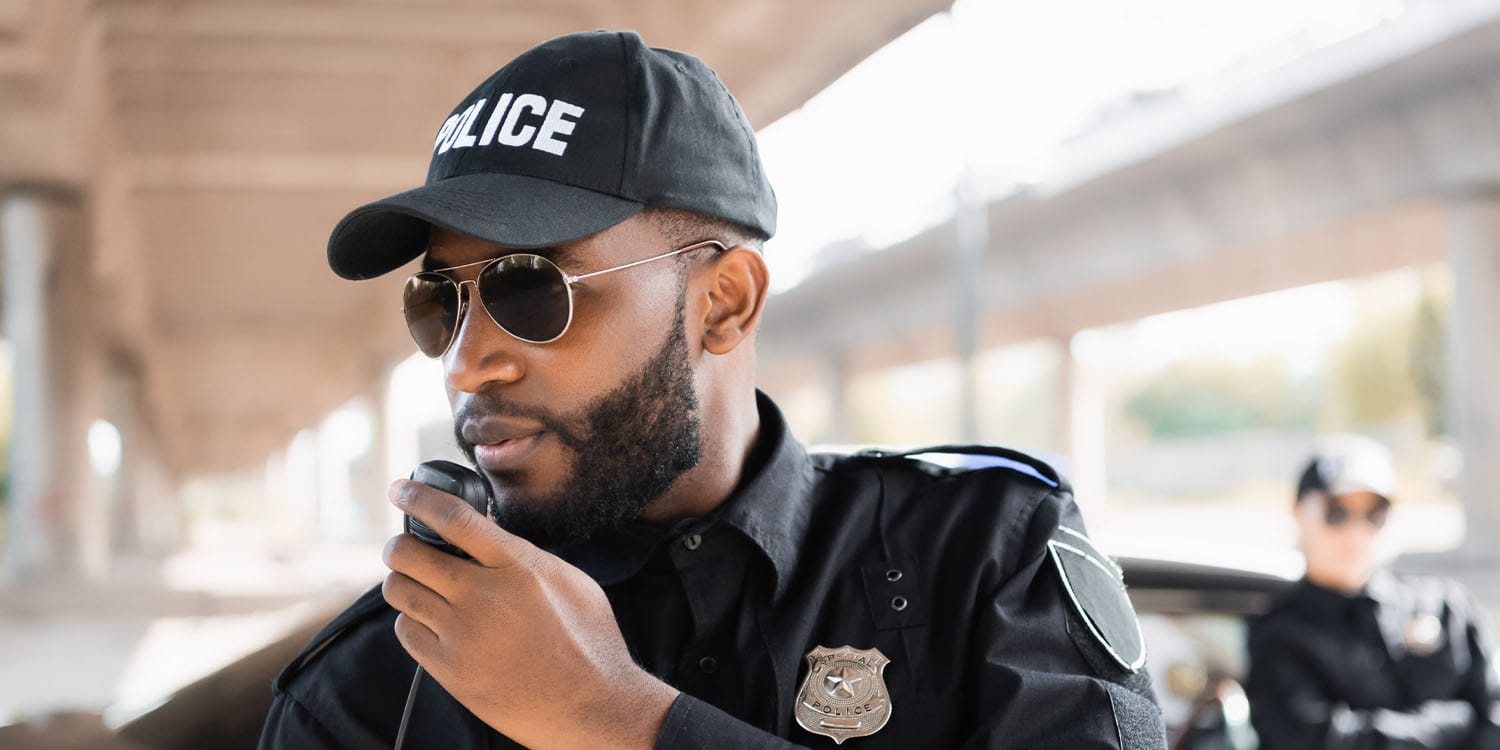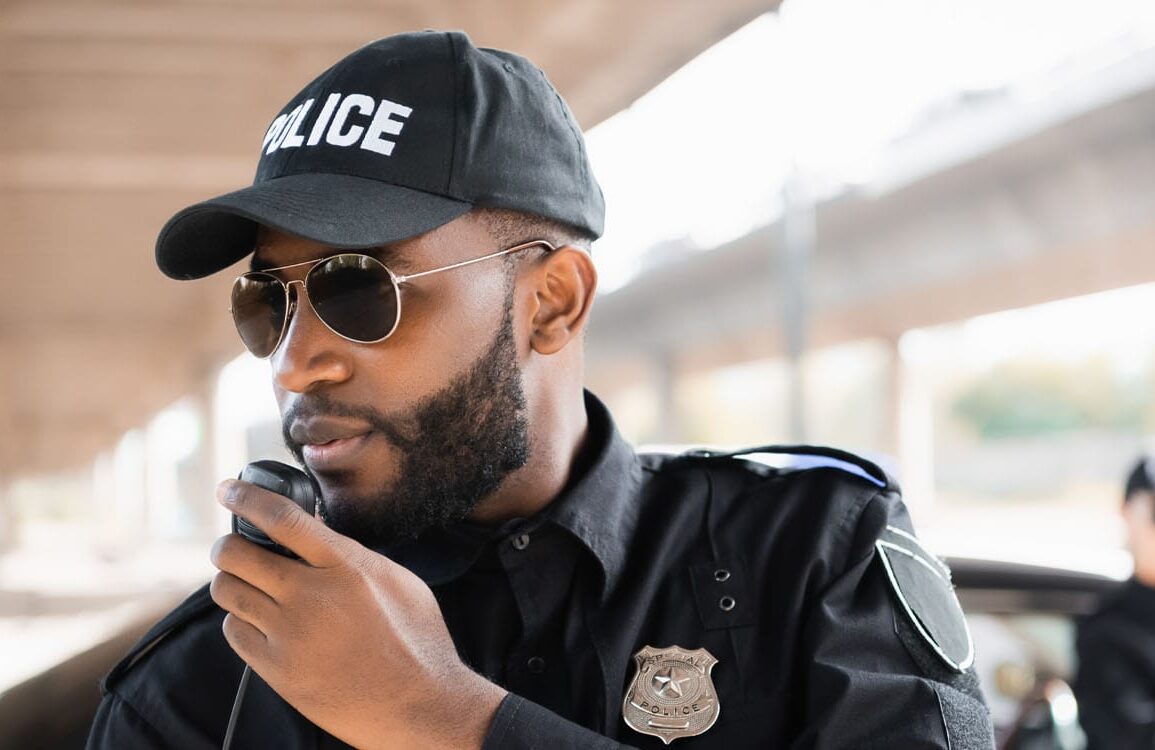
Most Black Americans favor maintaining or even increasing local police presence and funding, according to a recent study published in the Journal of Criminal Justice. Surprisingly, this preference is more robust among Black Americans than non-Black Americans — it holds steady regardless of changes in crime trends or information about policing reforms. Support for police is, however, reduced by negative feelings towards the police and perceptions of unfairness in police procedures.
The new study was prompted by existing contradictions in public opinions toward policing, especially among Black Americans. Despite widespread fears and distrust towards the police, evidenced by previous surveys and reports, a significant proportion of Black Americans favor strong local police presence and funding.
“Interest in this topic arose when opinion polls revealed a seeming paradox: despite Black Americans reporting significantly greater fear of the police compared to their White counterparts, such that most Black Americans are afraid of being mistreated by officers, they still apparently prefer to maintain or even increase police presence and spending in their local communities,” said study author Linda Balcarová, a PhD student at the School of Criminal Justice at the University at Albany SUNY.
“We sought to understand the reasons behind Black Americans’ desire to sustain or amplify the presence and funding of an institution – policing – that they fear. We assumed the answer lied in the questions used in national polls, which often lack background information about crime trends and police reform and thus fail to capture racial differences in assumptions about crime and policing, potentially giving rise to an artificial racial gap in policy attitudes.”
The study was conducted through an experimental approach using a survey administered by YouGov, a highly respected polling organization known for its rigorous sampling methodologies. Participants in the study totaled 1,100, with a deliberate sampling of both Black (511 participants) and non-Black Americans (589 participants) to allow for comparative analyses.
The participants were chosen to reflect a balanced demographic representation of the U.S. adult population, including diversity in age, gender, education, and political orientation. This demographic balancing was crucial to control for potential confounding variables that could influence attitudes towards policing.
The survey included questions commonly used in national polls by Gallup and Pew Research to gauge public opinion on police spending and presence in local areas. To test the influence of perceived crime trends and policing reforms on these attitudes, participants were randomly assigned to one of several groups. Each group received different contextual information about crime rates and police reform efforts before answering the survey questions.
Specifically, one group served as the control group, receiving no additional information about crime trends or reforms, thereby replicating the typical polling scenario. The other groups were considered treatment groups, where participants were given varied scenarios: one where crime was increasing without new reforms, another with decreasing crime also without reforms, and two more where reforms were being enacted alongside rising or falling crime rates.
In addition to these scenario-based questions, the survey also collected data on participants’ perceptions of racism in policing, their personal fear of police, and their general fear of crime.
Only a minority of respondents expressed a desire to reduce police patrol times or funding. Instead, significant majorities support maintaining or even increasing police presence and budgets: 93% of White respondents, 85% of Black respondents, and 82% of respondents from other racial and ethnic groups prefer at least the current levels of police patrol. Similarly, 92% of White respondents, 87% of Black respondents, and 84% of respondents from other groups favor maintaining or increasing police funding.
Regarding policing reforms aimed at increasing police accountability and oversight, expectations vary significantly by race. Only 23% of White respondents anticipate such reforms, compared to 36% of both Black respondents and respondents from other racial and ethnic minorities. This discrepancy suggests that while White respondents are more skeptical about the likelihood of reform, they are less likely to perceive current police practices as racially biased compared to Black respondents and other minorities, who perceive higher levels of racism in policing.
Interestingly, Black respondents’ preferences for local police patrol and police spending were not contingent on changes in crime rates. In contrast, non-Black respondents’ preferences for police patrols showed more sensitivity to the experimental conditions related to crime trends and policing reforms. For example, their preference for police presence tends to decrease when crime is believed to be declining, especially if no new reforms are being implemented. However, if crime is rising and reforms are anticipated, their support for increased patrols grows.
“We were surprised that Black Americans’ attitudes were so robust and not influenced by descriptions of the broader social and policy context,” Balcarová told PsyPost. “Even more surprising was that non-Black respondents’ policing preferences appeared to be more contingent on contextual information about crime trends and police reforms.”
Instead, Black respondents’ support for police patrol is more influenced by their general fears, perceptions of how officers treat civilians, personal or familial experiences with policing, and their age. In particular, those who fear the police are less supportive of police patrols, while those who fear crime, view police behavior as procedurally just, have connections to law enforcement, or are older tend to support more police presence.
“The takeaway from our findings is that Black Americans, like non-Black Americans, are supportive of policing,” Balcarová explained. “They want police departments to be well-funded and police officers to actively patrol and serve their communities. However, their support is not solely based on assumptions about current crime trends and police reform. They consider a myriad of other factors, such as police-related emotions (i.e., fear of police) and perceived procedural justice or injustice from police interactions, which they might have experienced in the past or believe they might experience in the future due to their race.”
“In addition, for both Black and non-Black respondents, fear of the police was associated with a preference for less police patrol, while perceived police procedural justice was linked to a preference for more police patrol and spending in communities. This suggests that if civilian fear of the police was reduced and police-civilian relations improved (e.g., through procedural justice training, workforce diversification, and implementation of police accountability reforms), support for local police among Americans would significantly increase.”
One of the study’s limitations is its reliance on self-reported data, which can be subject to biases. Additionally, the experimental manipulations, while insightful, do not capture all the complexities of real-world scenarios that might influence public opinion.
“Although we found that the information about crime trends and police reform did not significantly affect the responses of Black Americans, this should not be interpreted to mean that policing reforms are unimportant or not favored by them,” Balcarová noted. “Quite the opposite is true. Most Black Americans want additional policing reforms to increase officer accountability and reduce police misconduct.”
Future research could explore more dynamic models of opinion formation and consider longitudinal studies to track changes over time. More in-depth qualitative research could also provide deeper insights into the personal experiences and narratives that shape these opinions.
“Our long-term goal for this line of research is to continue to study how to improve policing and reduce Americans’ fear of being mistreated by police officers,” Balcarová said.
The study, “On the Robustness of Black Americans’ Support for the Police: Evidence From a National Experiment,” was authored by Linda Balcarová, Justin T. Pickett, Amanda Graham, Sean Patrick Roche, and Francis T. Cullen.



